Car Review: Hyundai Santa Fe – Nice frills, forget about the thrills
Time was when Korean cars were fabled for their gimcrack build, weird names and challenging looks. Hyundai’s latest SUV knocks all that on the head, says Sean O’Grady
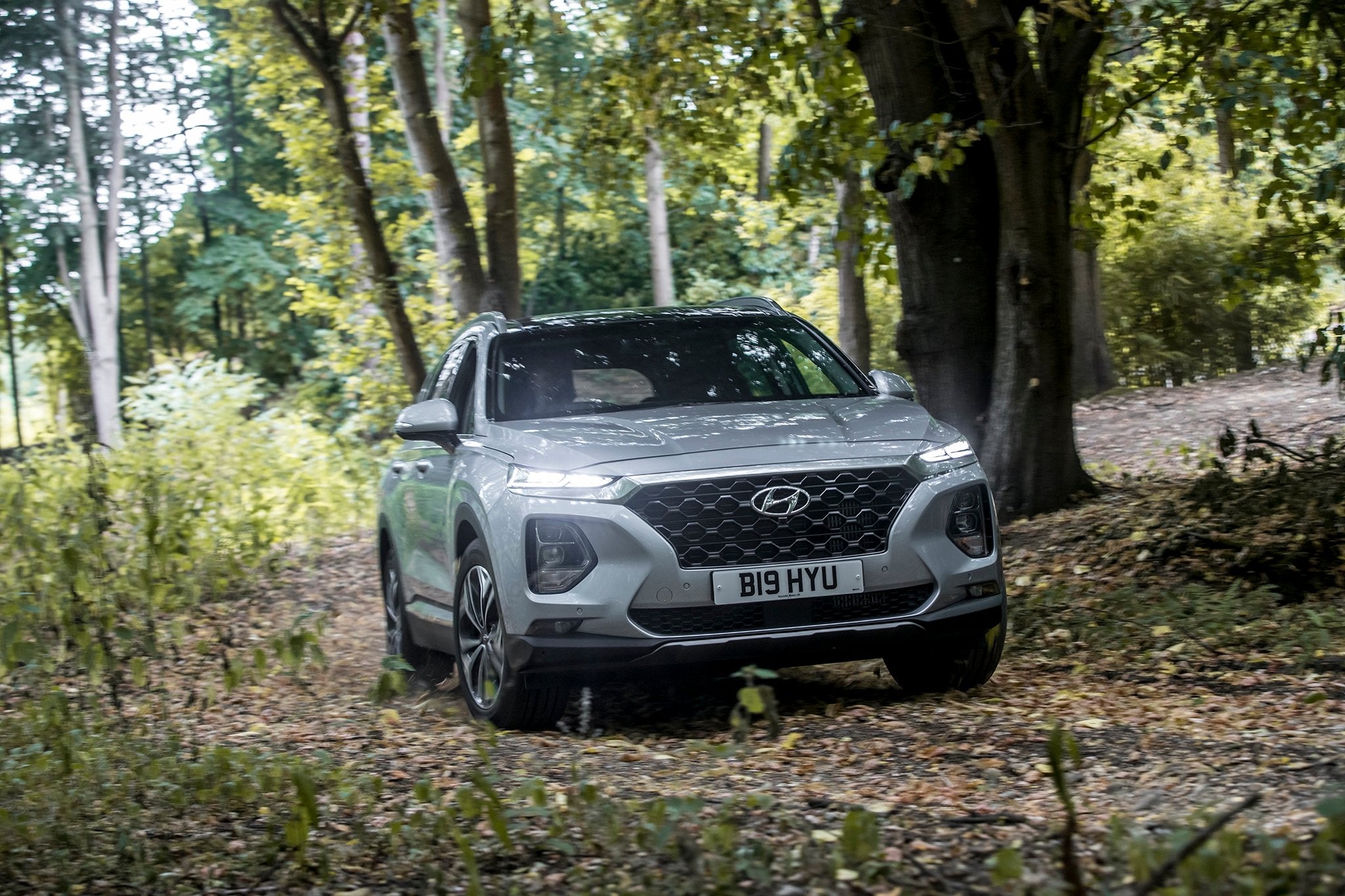
Boring, sometimes, is right and fitting. Such as in a seven-seat SUV. Horses for courses, and all that. No one, surely, buys a Hyundai Santa Fe for balls-out thrill-seeking, and the car cannot be faulted for failing to provide them. It will, though, carry five adults, two children and a certain amount of clobber around for about 400 miles without having to fill up. That is what it is there for. And if you’ve family that large you’ve probably long since forgotten all about thrill-seeking.
That said, though, it is a surprisingly pleasant car to drive. This is mainly because of the engine, a lazy and powerful unit with plenty of power at low revs – plenty of torque, as the jargon has it. So it will shift if you want it to, with only the slightest of hesitations from a standing start. An all-new eight speed automatic transmission is very well matched to the 2.2 litre diesel engine. Hyundai do fit a little button that will allow a driver to select “Sport”, which does make progress a little more urgent. At not far short of two tonnes, though, and with an engine that is all out of revs at about 4,000 rpm, it really isn’t for chucking around. There’s no petrol or hybrid options yet, by the way.
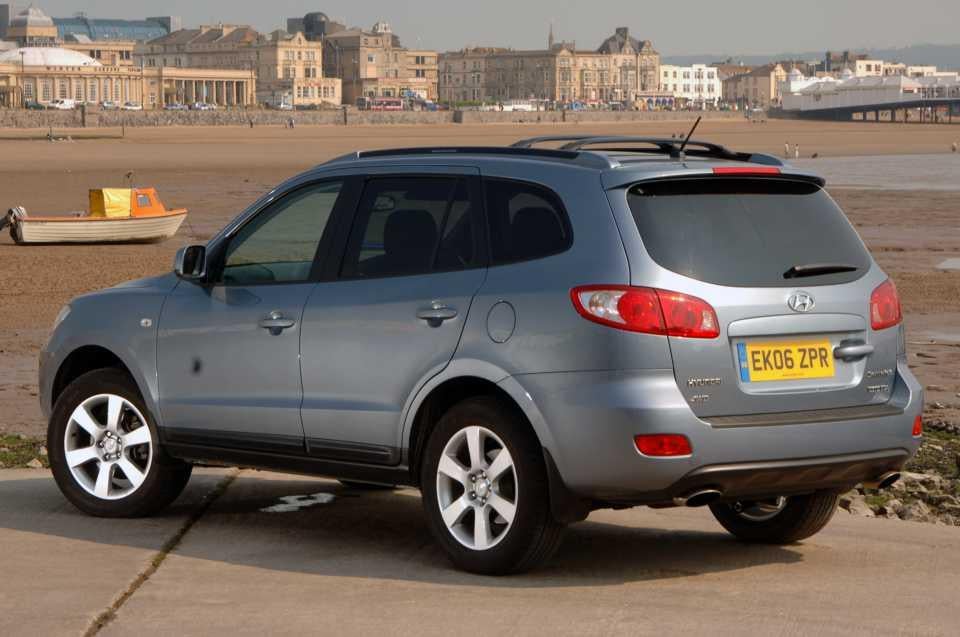
Time was when Korean cars were fabled for their gimcrack build, weird names and challenging looks (including these that were designed by British designers). Lazy motoring journalists – rare, I know – were blessed when they had a Daewoo Leganza, a Ssangyong Rodius or a Kia Shuma parked outside, because these gargoyles on wheels made for very easy copy. The jokes virtually wrote themselves, and the photography did the rest.
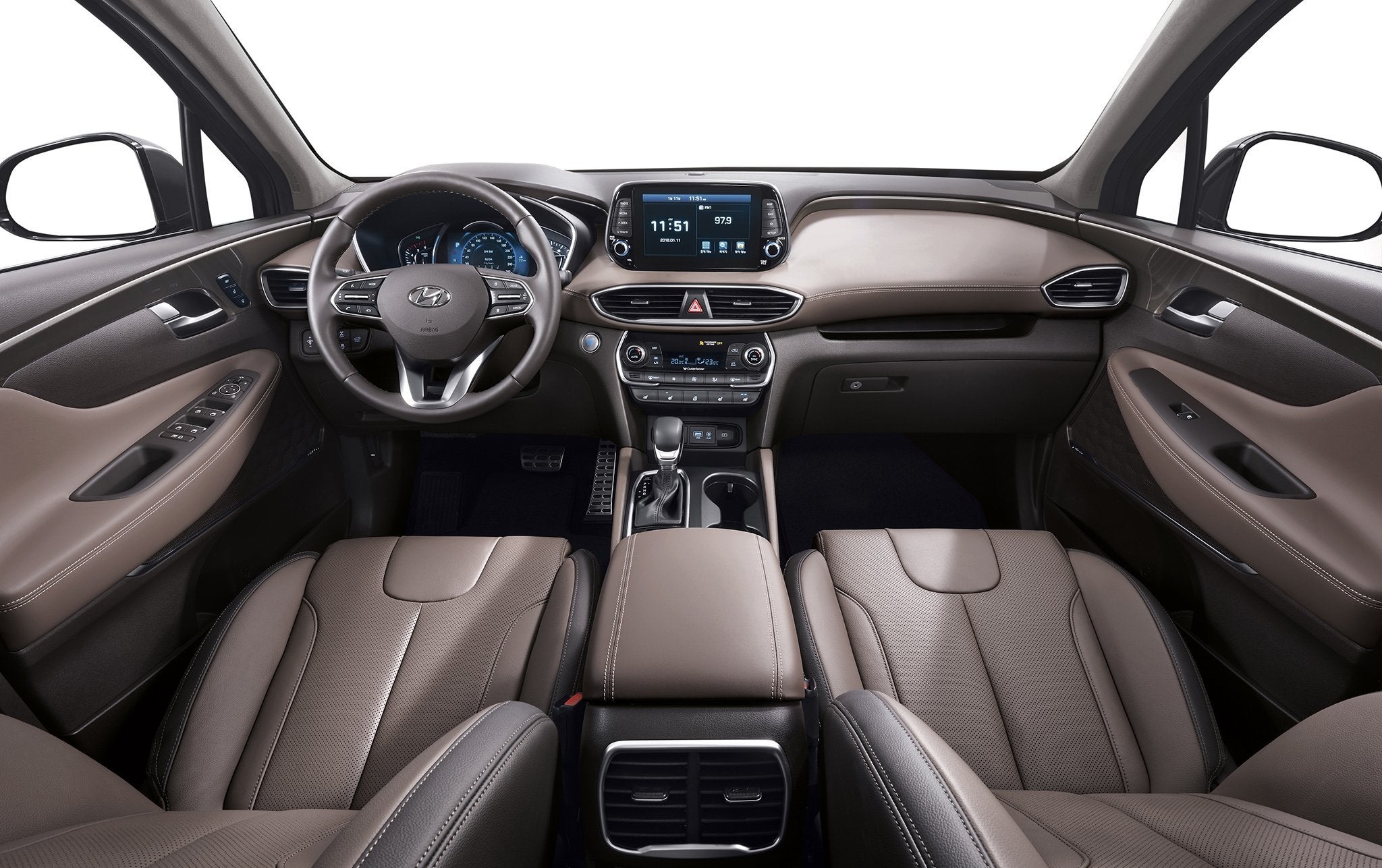
That’s not been true for a while, of course, and nowadays no one feels the slightest embarrassment about paying £40,000 for a Hyundai, such as the Santa Fe. The name isn’t that silly, after all, and the looks are relatively pleasing, and fashionable. There’s some slim headlights set high and deep into the wings; a big bold grille, swoopy swage lines along the flanks to break up the slabs of sheet metal, and some attractive alloy wheels. It could easily be a Ford, say.
The danger, though, is that the likes of Hyundai start to emulate Toyota and Nissan and start to make stuff that is just wilfully strange. Things could easily turn ugly. They’ve got the balance right, for now.
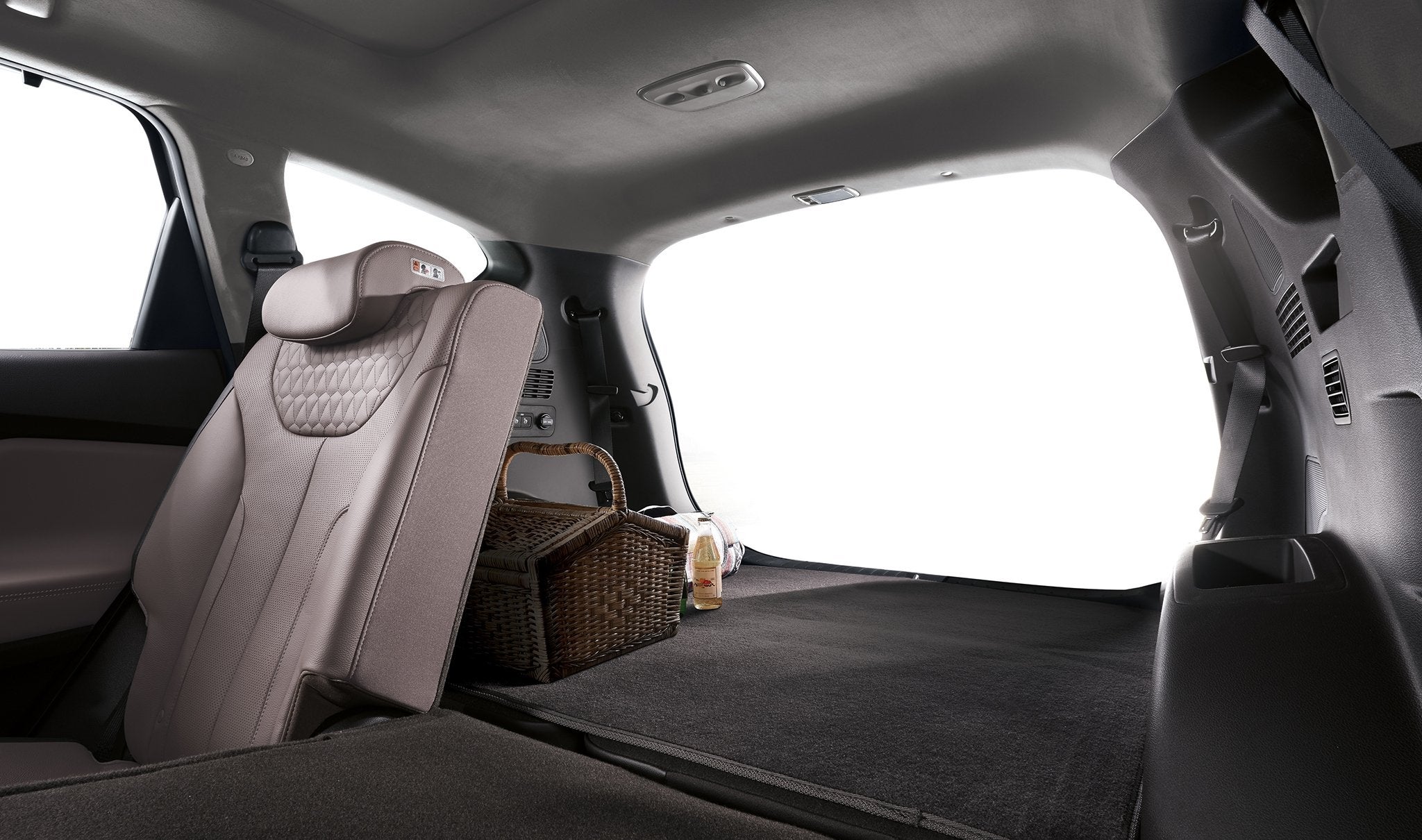
The cabin is dark, conservative and hard-wearing by the looks of things and the controls are extremely easy and intuitive to use. The DAB radio, for example, is relatively easy to navigate, as is the satnav, and the adaptive cruise control (so the car automatically slows when the vehicle in front does so) is adjusted by two flicks of your thumb. It is an extremely comfortable car.
The spec
Hyundai Santa Fe Premium SE
Price: £40,026 (as tested, range starts at £31,596)
Engine: 2.2 4-cylinder diesel; 8-speed auto
Power output (PS@rpm): 200@3,800
Top speed (mph): 126
0 to 60 (secs): 9.3
Fuel economy (mpg): 47.1
CO2 emissions (g/km): 164
We have come to take for granted so much in our cars these days that it is easy to forget that a powered tailgate, a reversing camera, Bluetooth connectivity and touchscreens were available, if at all, only on the most expensive products just a few years ago. Why, you can even recharge your smartphone wirelessly on a dedicated pad – provided you have a phone that is as advanced as your new car.
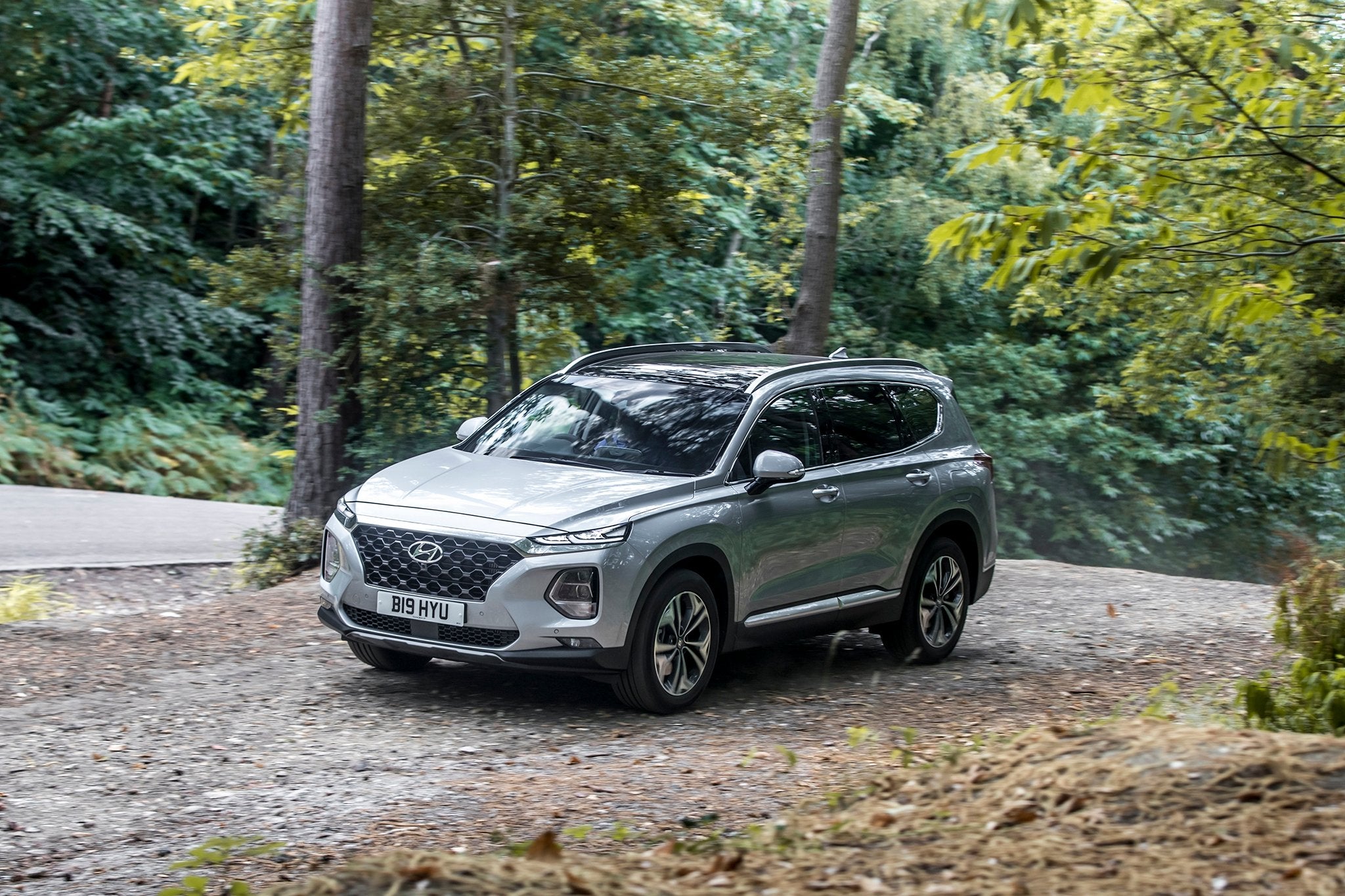
There isn’t much to criticise. The finish isn’t quite as high quality and finessed as on some of its upmarket rivals, so the screen for the satnav, for example, is relatively small and doesn’t fit flush on its dashboard plinth, something that you’d not find on a Mercedes-Benz. So Hyundai shouldn’t try and be too adventurous when it comes to pricing their take on the medium-sized SUV.
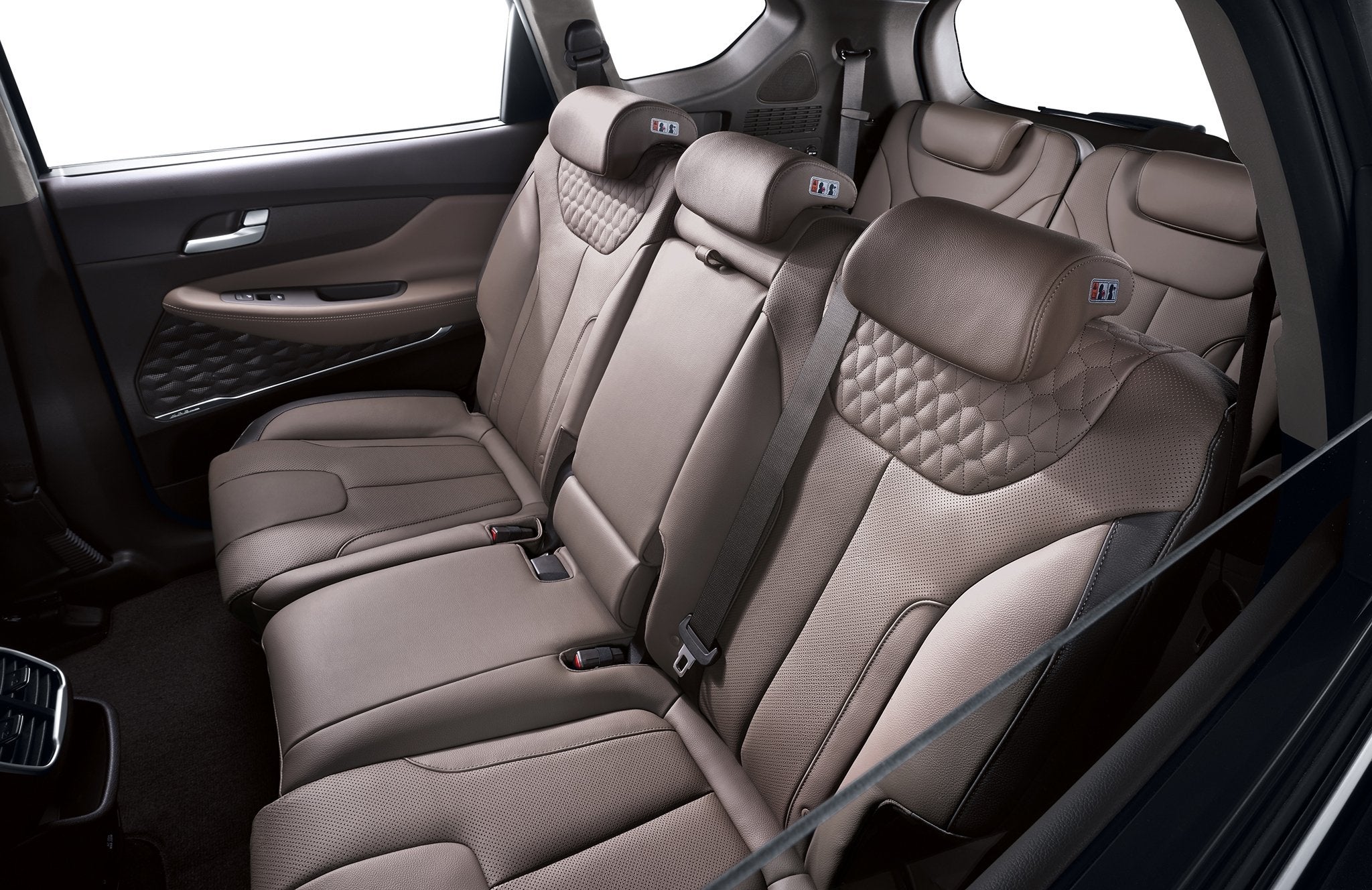
The other problems with the Santa Fe are those inherent to every substantial 4x4 vehicle – excessive weight, worse fuel economy, higher emissions and poorer dynamics than you’d experience in a conventional estate car, say, and the nuisance such bulky designs cause on crowded city streets. I’d opt for a Volvo V60 estate every time, unless you really must have seven seats (the last two are small, so you can put kids in the boot safely).
As I say, the Hyundai Santa Fe can be a bit on the dull side, but can’t we all?
Join our commenting forum
Join thought-provoking conversations, follow other Independent readers and see their replies
Comments
Bookmark popover
Removed from bookmarks